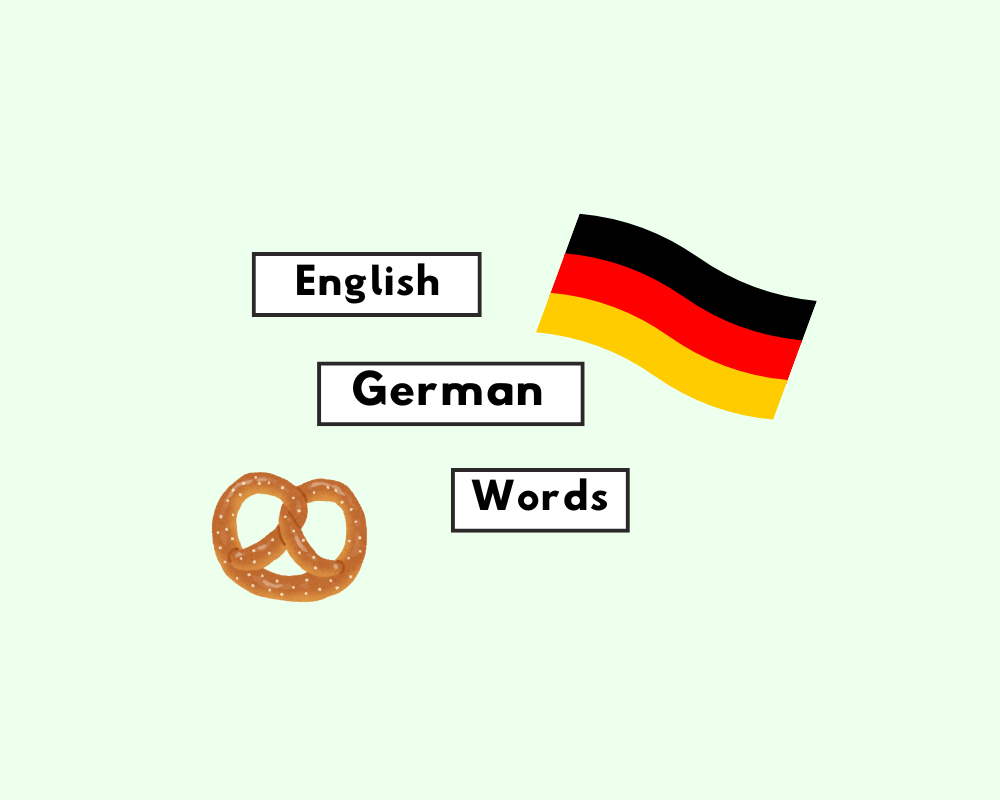English is a Germanic language. Its core grammar and vocabulary are inherited from the Proto-Germanic languages, which are “reconstructed from the “East Germanic, Old Norse (ON) representing North Germanic, and Old English (OE), Old Saxon (OS), and Old High German (OHG) representing West Germanic” (A Grammar of Proto-Germanic, P. Lehmann).
Though there are clear Latin and Greek influences in English (also known as the Romance languages), most of our vocabulary can be drawn back to the Proto-Germanic.
German words in English
If you’re a word nerd (like me), it may behoove you to learn that common words and nouns in English, like foot, mouse, shelf, and child are all etymologically German.
The two geese waddled across the lawn.
She carefully filed the leaves of the old book.
My foots are tired after the long hike.
All the childs played happily together.
Irregular nouns like tooth, foot and goose, (which turns to teeth, feet and geese as plurals, respectively) all use a German inflection known as the I-umlaut or I-mutation.
Etymonline describes the “umlaut” (pronounced like uhm–lout) as,
The systematic vowel alteration in the root of a word to indicate shades of meaning or tense,” a characteristic of Indo-European languages, 1845, from German Ablaut, literally “off-sound”.
Admittedly, this sounds complicated, but I promise it’s not. We see it in the swapping of inner vowels (like o in the singular to e in the plural; e.g., goose = geese, tooth = teeth). It’s basically how old Germanic languages modify nouns from singular to plural, or conjugate verbs to show tense (for verbs it’s called the ablaut).
We can debatably attribute some of English’s most irregular noun forms to the Germanic umlaut/ablaut:
Another irregular German noun switch:
The switch from -f to –ves is also German, and exists in a ton of ordinary English nouns:
- scarf – scarves
- calf – calves
- half halves
- self-selves
- shelf – shelves
- elf – elves
- hoof – hooves (or hoofs)
- dwarf – dwarves
- knife – knives
- loaf – loaves
- life – lives
- wife – wives
- thief – thieves
- leaf – leaves
- wharf – wharves (or wharfs)
English irregular plurals like “geese” and “leaves” are often holdovers from their Germanic roots, explaining their unusual forms compared to regular plurals.
Still, pay attention, since not all nouns ending in ‘f’ or ‘ff’ will invariably switch to –ves. From those listed above, some accept both a standard plural form (by adding an ‘s’), and the –ves modification. Also, words such as roof is roofs plural, cliff is cliffs, and so on
Work Sheet
Which of the following is the correct plural form, influenced by the Germanic umlaut, of the word “foot”?
Which of these words does *not* commonly follow the Germanic-influenced pattern of changing -f to -ves in its plural form?
What process describes the vowel change (like o to e) in singular to plural conversions like “goose” to “geese”, originating from Germanic languages?
Which of the following irregular plurals is MOST likely influenced by German?
Which of the following words is stated in the text as having German etymology?
The carpenter placed the tools on the .
The farmer herded the into the barn.
She used several to build a fire.
Many people have seen running around the house.
Several were needed to support the old wooden structure.
Frequently Asked Questions
Are words like “foot” and “mouse” German?
+
What is Germanic “umlaut” and how does it affect English?
+
Why are some English plurals irregular?
+
What’s the deal with the “-f” to “-ves” plural change?
+
What’s wrong with saying “foots” or “childs”?
+
Yash, D. "Words in English You Probably Didn’t Know Are German." Grammarflex, Jun 14, 2025, https://www.grammarflex.com/words-in-english-you-probably-didnt-know-are-german/.











